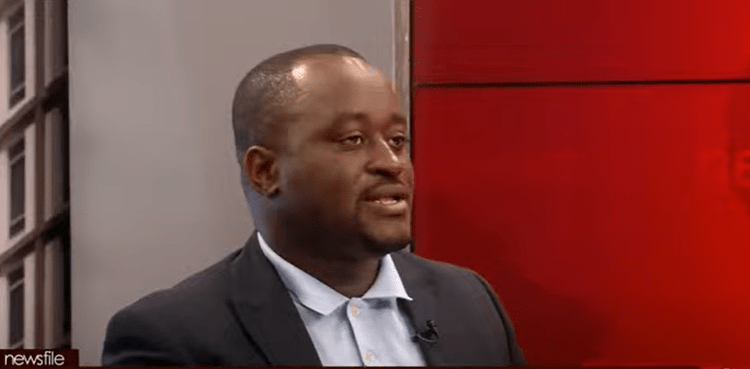$3.8bn financing loss statement by Finance Ministry have elements ‘fear mongering’, says Dr Theo Acheampong
The current impasse between Ghana and its bondholders may delay the country’s self-imposed deadline to finalize an accord needed to secure further payments from the IMF by the end of March.
- Advertisement -
Economist and Political Risk Analyst, Dr Theo Acheampong, says there is a bit of ‘fear-mongering’ in the Finance Ministry’s statement that Ghana stands to lose some $3.8bn in financing from the World Bank, IMF, and other development partners.
Speaking on the NorvanReports’ and Economic Governance Platform (EGP) X Space on the topic “Potential Economic Impact of Ghana’s Anti-LGBTQI Bill”, he noted that the financing gap Ghana needs to cover per data from the IMF is some $15bn with $4.6bn expected from the IMF and the World Bank.
- Advertisement -
The remaining $10.5bn he noted, is meant to be gained from the restructuring of the country’s external debt.
- Advertisement -
Of the $4.6bn, some $1.5bn has already been attained through the first and second tranche disbursement of the IMF and some $300m disbursement by the World Bank for budgetary support.
Adding that, there are no LGBTQI-based criteria for the disbursement of funds by the World Bank and the IMF under the Fund programme.
According to him, securing the $10.5bn financing gap from external debt restructuring is the biggest challenge Ghana faces in closing the financing gap. Adding that Ghana’s inability to reach an agreement with private creditors to restructure its external debt will have a more adverse economic impact on the country than withheld funding from the IMF and World Bank.
“In my view, there is a bit of ‘fear-mongering’ in the Finance Ministry’s statement that Ghana stands to lose $3.8bn in financing from the World Bank and IMF, there are no LGBTQI-based criteria for disbursement by the World Bank and the IMF under the Fund programme,” he remarked.
Already, Ghana’s Eurobond holders (private and commercial creditors) are requesting that the country link interest payments (coupon payments) on the bonds to future GDP growth rates.
Per the proposal put to the Finance Ministry, interest payments will increase should economic growth accelerate faster than targets set by the International Monetary Fund (IMF).
- Advertisement -
Ghana’s economy is expected to expand by some 2.8% this year, with growth accelerating to 5% in 2027 and 2028. The country’s economy expanded by an average 6.9% between 2017 and 2019, before growing by 0.5% in 2020 due to the adverse impacts of the Covid pandemic.
The proposal made by Eurobond holders is in exchange for the acceptance of the 25% to 30% haircut on their investments as earlier proposed by the Finance Ministry.
Reports, however, have it that, the Finance Minister, Dr Amin Adam has opposed the proposal made by the private and commercial creditors.
The current impasse between Ghana and its bondholders may delay the country’s self-imposed deadline to finalize an accord needed to secure further payments from the IMF by the end of March.
The Ministry of Finance in a press release issued on Monday, March 4, 2024, urged the President, Nana Akufo-Addo, to exercise restraint in assenting to the recently passed anti-LGBTQ bill by Parliament, citing potentially dire financial repercussions for the nation.
The Finance Ministry cautioned that endorsing the bill could result in significant financial setbacks for Ghana, with an estimated loss of $3.8 billion over the next five to six years.
According to the Finance Ministry’s statement, the impact of the bill on Ghana’s financial landscape would be profound. Notably, the nation stands to lose substantial World Bank financing, including a projected loss of $600 million in budget support for 2024 alone, alongside $250 million earmarked for the Financial Stability Fund.
Such losses would undoubtedly strain Ghana’s foreign exchange reserves and jeopardize exchange rate stability, further exacerbating economic challenges.
Source:norvanreports
- Advertisement -


